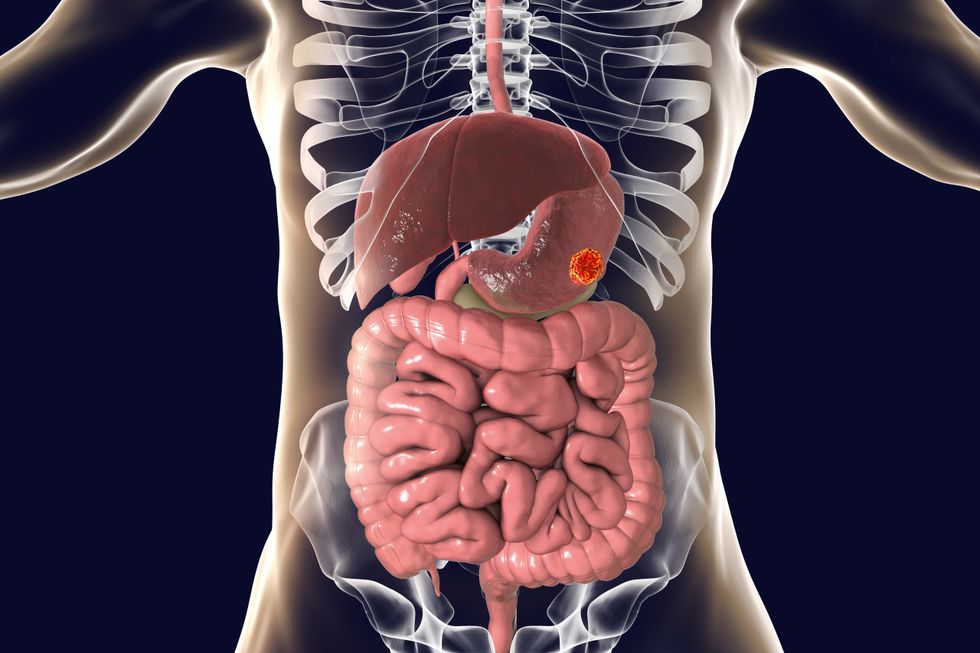NHS issues fresh cancer appeal urging Britons to contact their GP over unusual body changes - full list of symptoms

The health service is encouraging anyone with concerns to consult their doctor promptly
Don't Miss
Most Read
The NHS has issued an urgent appeal for people to seek medical attention if they experience bodily changes that could signal cancer.
Health officials are emphasising the critical importance of early detection in improving treatment outcomes.
In a recent social media post, the NHS stated: "If something in your body doesn't feel right, and you're worried it could be cancer, contact your GP practice."
Medical experts stress that while cancer can manifest differently in individuals, recognising potential warning signs and acting quickly could make treatment significantly more effective.

Britons have been urged to contact their GP if something doesn't feel right
|GETTY
According to a list on the NHS website, signs that could indicate cancer include a new lump or swelling anywhere on the body, experiencing excessive sweating or prolonged high temperatures, and feeling unusually tired.
Other potential indicators are unexpected bruising or bleeding, unexplained pain, unintentional weight loss, or reduced appetite.
Changes in urination patterns, including increased frequency, urgency or pain, should also prompt medical consultation.
Skin changes warrant particular attention, including new moles, alterations to existing moles, or persistent rashes or sores.
Digestive issues such as frequent, severe or worsening heartburn and indigestion may also be significant.
Additional symptoms to monitor include persistent coughs, coughing up blood, or unusual genital symptoms such as blood in semen or abnormal vaginal discharge.
The NHS advises that whilst these symptoms may have various causes, medical consultation is essential for any changes that feel abnormal.
LATEST DEVELOPMENTS

The early signs of bowel cancer are easy to miss
|GETTY
Cancer can develop in anyone and affect any part of the body, with the health body emphasising that different cancer types present unique symptoms, making it crucial to seek GP advice for any concerning changes.
Early detection remains paramount, as the NHS notes: "Finding cancer early may mean it is easier to treat."
The health service urges people not to delay seeking medical attention if worried about potential cancer symptoms.
The full list of symptoms on the NHS website includes:
General Symptoms
- A new lump or swelling anywhere on your body
- Persistent or recurring high temperature or night sweats
- Unusual tiredness
- Unexplained bruising or bleeding (e.g. from your bottom, in your pee, or vomiting blood)
- Persistent or unexplained pain
- Unintentional weight loss or reduced appetite
- Needing to pee more often or urgently, or experiencing pain when peeing
Skin Symptoms
- A new mole, or changes to an existing mole
- A rash or sore that doesn’t heal
- Yellowing of the skin or eyes (jaundice) – may be harder to notice on darker skin tones
Digestive Symptoms
- Frequent or worsening heartburn or indigestion
- Persistent bloating or a swollen tummy
- Changes in bowel habits (e.g. diarrhoea or constipation that doesn’t improve)
Mouth and Throat Symptoms
- Difficulty swallowing
- A hoarse or croaky voice that doesn’t improve
- A sore or ulcer in your mouth that doesn’t heal
- White or red patches in your mouth
Lung and Breathing Symptoms
- A persistent or worsening cough
- Shortness of breath that doesn’t improve
- Coughing up blood
Genital Symptoms (Vagina or Penis)
- Unusual vaginal discharge
- Unusual vaginal bleeding (between periods, after sex, or post-menopause)
- Difficulty getting or maintaining an erection
- Blood in semen
The warning comes as a recent study highlighted troubling gaps in public understanding of cancer symptoms, with many unable to identify crucial warning signs that could lead to earlier diagnosis.











